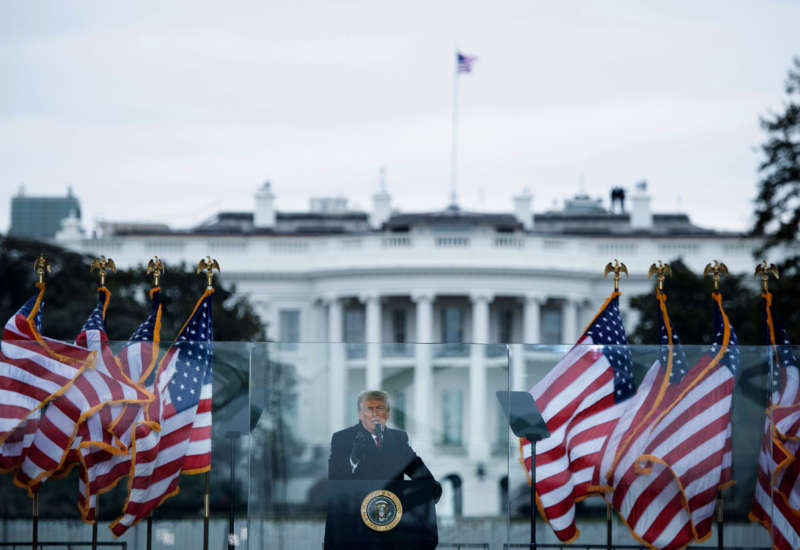On Wednesday, the U.S. Supreme Court announced that it would not hear an appeal brought by former President Donald Trump to block documents from his final weeks in office from being shared with the House select committee investigating the January 6 Capitol attack.
The 8-1 order from the Court means that those documents — over 700 in total — can finally be handed to the January 6 commission investigators. The committee lauded the Court’s decision in a statement on Twitter.
“The Supreme Court’s action tonight is a victory for the rule of law & American democracy,” the commission said. “The Select Committee has already begun to receive records that the former President had hoped to keep hidden & we look forward to additional productions regarding this important information.”
The documents in question relate to Trump’s actions on January 6, 2021, when a mob of his loyalists breached the Capitol building seeking to interrupt the certification of the Electoral College results. Some of the documents may also include Trump’s communications in the weeks leading up to the attack, and may provide insight into the former president’s role in plans to overturn the 2020 presidential election.
Jesse Binnall, a lawyer representing Trump, argued that the former president had the right to keep communications within the White House private, citing Trump’s executive privilege. Binnall had also suggested that the commission’s work was partisan.
“Congress may not rifle through the confidential presidential papers of a former President to meet political objections,” Binnall previously said. In his brief to the Supreme Court, Binnall also claimed that “producing these privileged documents would irreparably harm the institution of the Presidency.”
A three-judge panel from the U.S. Court of Appeals for the District of Columbia Circuit rejected Binnall’s arguments in December, noting that current President Joe Biden waived Trump’s executive privilege claims in October and that Trump provided “no legal reason to cast aside” that decision.
On Wednesday, the Supreme Court refused to hear an appeal to that decision, which means that the D.C. Circuit Court’s opinion will remain in place.
Clarence Thomas was the only Supreme Court justice to object to the refusal to hear the case. Thomas did not provide a written reason for his vote, but many on social media noted that his wife, Ginni Thomas, had taken to social media on the day of the attack to express support for demonstrators in the “Stop the Steal” rally that directly preceded the Capitol breach. Some were critical of the justice for refusing to remove himself from the case.
“The fact that Clarence Thomas continues to fail to recuse himself, given the activities of his wife that are directly related to the insurrection, is mind-boggling,” wrote Norm Ornstein, contributing editor for The Atlantic.


